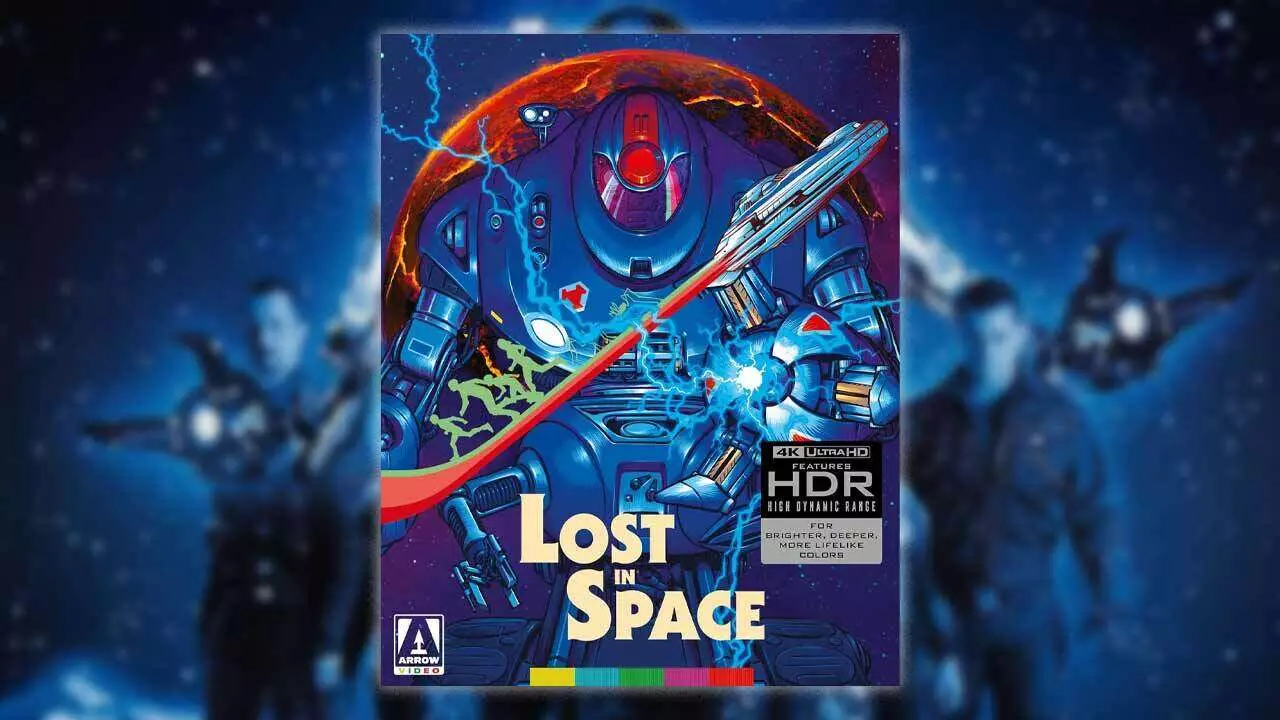In the era of digital remasters and stunning visual fidelity, Arrow Video’s upcoming 4K restoration of the 1998 science fiction film *Lost in Space* stands out as a formidable tribute to both the film’s cult status and technological innovation. Despite its initial lukewarm reception, this film deserves a fresh perspective, especially with a premium edition that promises not just clarity but a comprehensive immersive experience. The value proposition — a significant discount at Amazon and a host of collector’s extras — amplifies why this release isn’t just for die-hard fans but also for cinephiles eager to explore sci-fi classics anew.
Unlike standard remasters, Arrow Video’s effort is meticulous, striving to preserve the film’s original visual integrity. Restored directly from its original camera negative in native 4K resolution, the edition ensures every detail, from digital effects to production design, is preserved with stunning clarity. This choice speaks to a deeper understanding of film preservation, as minimal digital intervention often results in a more authentic viewing experience. The support for high dynamic range (Dolby Vision and HDR10) further adds richness and depth, breathing fresh life into the film’s visuals—a crucial factor given the film’s groundbreaking visual effects at the time of release.
What elevates this release beyond mere technical mastery are the thoughtfully curated physical and on-disc extras. The reversible sleeve and bespoke cover art demonstrate an aesthetic commitment that appeals to collectors seeking distinctive packaging. The included illustrated booklet, filled with commentary, original production notes, and articles, offers fans and newcomers alike a comprehensive behind-the-scenes look into the making of *Lost in Space*. Such materials are vital for understanding not just the film’s narrative but also the creative ingenuity of its team. This edition becomes more than a movie; it transforms into an artifact of cinematic history.
A Personal Perspective: Why This Remaster Captures More Than Just Pixels
The film’s mixed initial reception often overshadowed its enduring appeal, yet it has quietly amassed a loyal following, exemplifying how failure in the mainstream doesn’t necessarily negate legacy. From a subjective standpoint, this release is a gift—an opportunity for modern audiences to judge the film’s merits through a cleaner, more vibrant lens. Director Stephen Hopkins approved this restoration, an endorsement that guarantees fidelity to his original vision. For viewers unfamiliar with the 1998 release or the original TV series, this edition provides an entry point that balances nostalgia with contemporary cinematic quality.
Additionally, the film’s ensemble cast, including William Hurt and Gary Oldman, delivered compelling performances that deserve clearer appreciation. Oldman’s portrayal of Dr. Smith, for instance, is a highlight that benefits visually from the clarity of 4K. These performances are often lost in lower-resolution editions, which sometimes obscure facial nuances and subtle expressions essential to character development. This restoration allows viewers to see actors’ performances in their full depth, creating a more engaging connection with the story.
But beyond the technical and performance aspects, there’s a larger, cultural significance to this release. *Lost in Space* exemplifies Hollywood’s 1990s shift toward big-budget sci-fi spectacles that sought to blend innovation with storytelling. While it may not have fully realized its potential back then, the film’s ambition, innovative visual effects, and modernized storytelling now set it apart as a piece worth revisiting. The limited edition packaging and bonus content enhance this narrative, positioning the film as a collectible object—and an invigorated piece of science fiction history.
Challenging the Notion of What Makes a Cult Classic Valuable
Many dismiss *Lost in Space* as a failed blockbuster, yet every so often, overlooked films gain significance precisely because of their flaws, their bold visual choices, or their place in a larger cultural conversation. Arrow Video’s approach recognizes this tension, offering fans an opportunity to see a misunderstood film in a new light—and to appreciate its inventive spirit. The extensive bonus features provide a layered understanding of the film’s production, from visual effects walkthroughs to interviews with key creators like Stephen Hopkins and Akiva Goldsman. These materials serve as a recognition that *Lost in Space*’s real value lies in its ambitious attempt to translate high concept into mass entertainment.
The true power of this edition is its ability to inspire fans and newcomers to reconceptualize the film’s place within sci-fi lore. It challenges the misconception that only critically acclaimed films are worth investing in. Instead, it champions the idea that films like *Lost in Space*, despite mixed reviews, possess an intrinsic cultural and entertainment value—especially when given such meticulous care in restoration. This release transforms the film from a relic into a modern artifact that warrants rediscovery and re-evaluation.
Furthermore, this release exemplifies how forward-thinking preservation and presentation can elevate the reputation of past cinematic efforts. As the landscape continues to evolve—with streaming services dominating and digital media becoming the norm—physical editions like Arrow’s 4K release reaffirm the importance of tangible, collectible film experiences. They serve as physical encapsulations of art and history, ensuring that even films with mixed receptions are honored and preserved for future generations.
In the end, Arrow Video’s *Lost in Space* restoration isn’t merely about visual clarity. It’s a statement about the enduring power of science fiction films to inspire, challenge, and entertain—regardless of initial reviews. It invites viewers to look beyond their preconceived notions, embrace the film’s visual spectacle, and appreciate the creative risks it took decades ago. For fans and newcomers alike, this edition isn’t just a purchase; it’s an act of rediscovery—one that celebrates the imperfect yet fascinating universe of *Lost in Space*.

